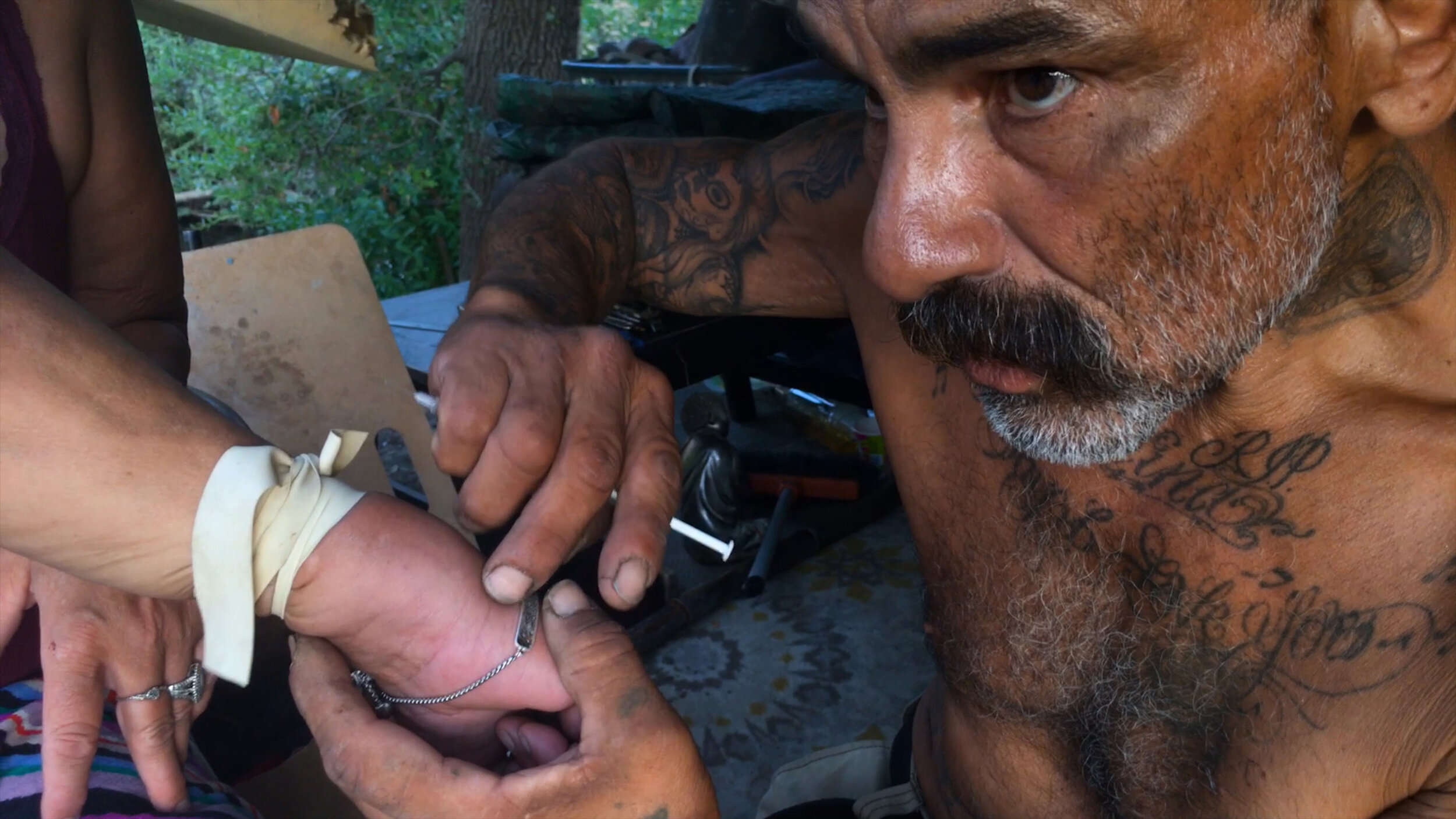Cancelled (2018)
Writer, director, cinematographer, editor
Cancelled is a mockumentary featuring an avid consumer and advocate of Bose noise cancelling headphones. Rosie, the protagonist, discovers ways in which she can silence or "cancel" disturbing, challenging or uncomfortable parts of social interaction, public navigation, and even internal conflict. The dystopian result of this is comedic and horrifying. Cancelled conveys the absurd tragedy of Rosie's personal story -- an experience which acts as a microcosm of the deadly and cosmic effects that the celebration of 'cancelling' has on millennials in American society.

No Home Here
Research, web design, fundraising and media relations
No Home Here is both an honest portrayal of homeless people and a critical look at the social and political systems they struggle to navigate. The film will provide viewers an intimate glimpse into the lives of the homeless characters it follows, revealing the factors that contributed to their homelessness and the barriers that make it difficult to get out.
Alcoholism (2018)
Writer, editor
Found Footage, Montage Editing
UC Berkeley Film 26 (Fall 2018)
Mormxns — Script
Co-writer
Series Overview:
Is service a truly selfless act, and how does the ego play into it? Does agency supersede the notion of destiny? Mormxns' jaded protagonists, Shoshana and Ashanti, will confront these questions as they emerge from the myopia of unquestioned Mormon faith and gain control over their shared twisted humor and respective intersectional identities.
On an episode by episode basis, funny and outrageous incidents force Mormxns’ protagonists up against the rigidity of the religious framework that has shaped their identities and apparatuses of morality up to this point. Each confrontation of faith and agency will serve as a metaphoric de-shackling of Ashanti and Shoshana's internalized misogyny and white supremacy.
“Two girls embark on a mission of service to God and to Comedy. But eventually just to Comedy.”
Over the arc of Season 1, we see the characters develop from radicalized and painfully not self-aware, to developing an organic swag as they dabble in creative success. Initially, Ashanti and Shosh follow the word of the church unquestioningly, and believe that their mission is to spread God’s message through comedy. Frustratingly, they encounter repeated problems as they are ultimately unable to a) function under authority and b) to maintain the purity that Mormonism demands. These concepts plays out through multiple professional and economic failures. In one episode, the two are faced with the unexpectedly massive challenge of finding $40 to pay for the fellowship’s application fee. They consider everything from executing their first marijuana drug deal, to becoming one-time egg donors in order to obtain the necessary funds. Each episode is punctuated with bizarre and formative discoveries, such as one where the two are introduced to masturbation via a misguided internet search regarding “the Right hand of God.”
We later follow the two through the tribulations and glories of writing and performing comedy, and the imperfect art of gaining clout amongst their fellow Park City citizens. The two orchestrate a poorly interpreted stand-up bit at their church’s open mic night. During events like this, they are forced to confront sexuality, intimacy, patriarchal bias against women in comedy, and the fact that men aren’t actually that funny.
They realize that perhaps it was their angst—rather than God—which guided them in the inevitable direction of creativity, and that they may have more control over their destiny than they originally thought. Ultimately, they find that the empowerment lies in the rejection of the mission, rather than in the promise of the mission itself.
“We created this for a 2019 script contest in a shared and coincidental manic ‘let’s be artsy Sundance girls’ episode. We have NO training in scriptwriting and busted this out in a caffeinated hour. That, along with the blatant Sundance establishment / Art Hoe / “Have you ever seen Citizen Kane?” bashing could be why we weren’t given the time of day. Or maybe we grossly miscalculated what we thought was an appropriate balance of offensiveness and relatability. Either way, we think it’s funny. Enjoy!”
-Natalie and Josie






